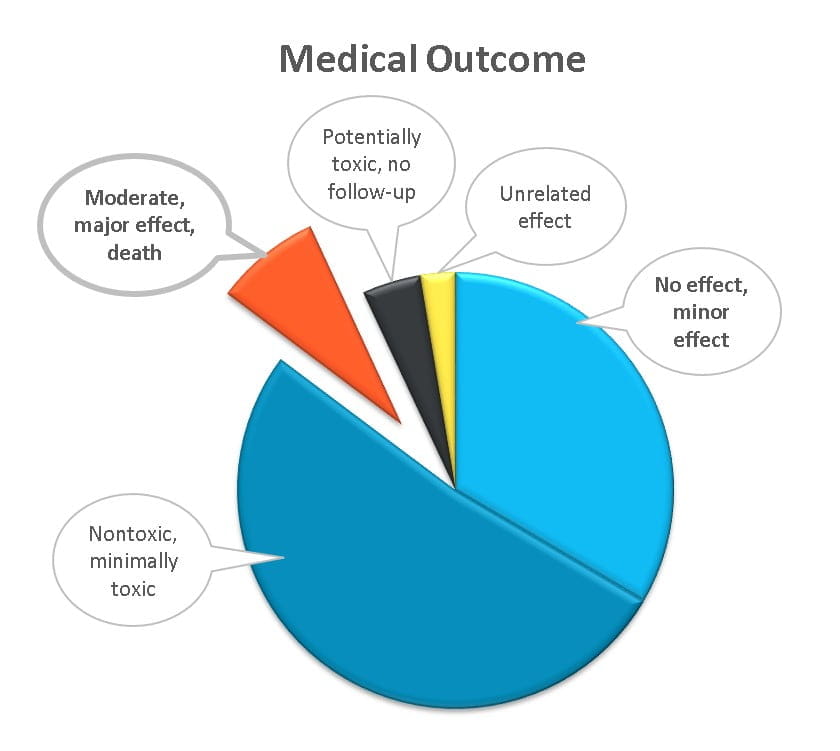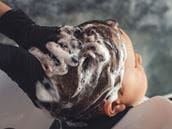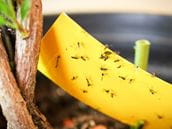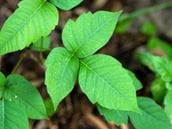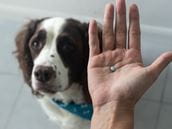
Taste Changes Don't Stop Poisonings
Antifreeze is a sweet-tasting poison. Studies show that adding a bittering agent to antifreeze does not decrease poisonings or suicides with antifreeze.
Displaying 51 - 60 of 100 results for "essential oil"
Antifreeze is a sweet-tasting poison. Studies show that adding a bittering agent to antifreeze does not decrease poisonings or suicides with antifreeze.
Most hair rinses and conditioners are relatively safe. If you accidentally swallow them, you may experience no toxicity or possibly mild irritation in the mouth, throat, or stomach. More significant gastrointestinal irritation can occur with some color rinses that contain ammonia or hydrogen peroxide and deep conditioners that contain cationic detergents.
Pest strips are typically made out of either glue on a paper backing or a porous strip impregnated with an organophosphate insecticide. Glue may stick to the skin or get in the eyes, but is unlikely to result in significant toxicity. However, exposure to organophosphates can be very toxic, causing muscle weakness, vomiting, diarrhea, seizures, and coma.
We use sunscreens to protect our skin from the sun's harmful rays. In some cases though, the use of sunscreen can result in allergic reactions or photoallergic dermatitis. Fortunately, in most cases, the rash is self-limiting and can be prevented in the future by avoiding use of certain sunscreen products.
Ecstasy, an illegal drug of abuse, is a stimulant related to amphetamine. An ecstasy overdose can cause high blood pressure, a rapid heart rate, seizures, dehydration, a dangerously high body temperature, and death. An ecstasy user who develops medical distress should be seen promptly in an emergency room.
Deodorants work by controlling odor, while antiperspirants reduce the amount of sweat released from the body. Although some people question whether these products cause cancer or other diseases, deodorants and antiperspirants are considered to be safe when used as directed.
St. John's wort has been used for centuries and is generally regarded as safe when taken alone and in recommended doses. However, it is well known to have several drug interactions that can result in serious adverse effects or other problems with medications you might already be taking. Consult your physician and pharmacist before starting herbal products or dietary supplements.
Poison ivy can cause a rash if someone touches it, which is caused by oils in the plant. The rash can be severe enough to blister and itch for days or weeks. Most cases can be managed at home. Severe cases require medical attention. If these plants are burned, inhaling the smoke can cause severe breathing problems.
Serotonin syndrome is a disorder caused by excessive serotonin activity in the human body. It often occurs after medication use and can cause potentially life-threatening symptoms including high fever, confusion, and seizures.
Apoquel® is the brand name for oclacitinib, a medication approved for use in dogs to stop itching caused by many different reasons. This medication is similar to corticosteroids but, has fewer side effects. Oclacitinib is only indicated for use in dogs and is not for human consumption.
Don't guess what you should do. Get accurate Poison Control answers online or by phone. Both are free and confidential.
or CALL 1-800-222-1222
The Poison Post® is a free, quarterly
e-newsletter delivering poison prevention tips right to your inbox!
Learn the Poison Help jingle in English or Spanish. Use these jingles to teach the Poison Control number: 1-800-222-1222. Available for download.
